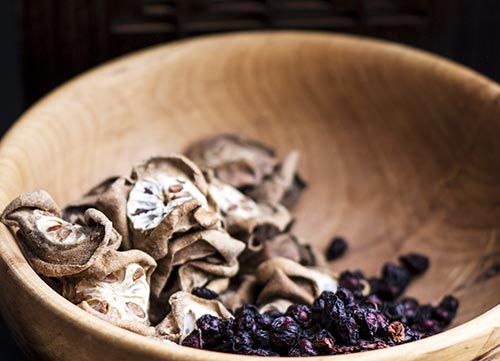Effective Treatment for Skin & Inflammatory Conditions
Western Medical treatment of chronic inflammatory disease (be it skin or bowels) relies primarily on suppressive drugs like steroids, protopic (tacralymus) and methotrexate. While lifesaving when used appropriately, these powerful immune suppressants have side-effects when used long term. One of the biggest side effects is dependency. Many patients have experienced strong withdrawal effects, with their condition flaring back up again (sometimes even worse than before), when they try to stop them. Patients are often told they will need such treatments for the rest of their life.
Chinese herbal medicine has been used for thousands of years to successfully treat inflammatory and auto immune conditions. Modern research has shown that, rather than just suppressing the inflammation, herbal medicine can regulate the immune system, relieve painful symptoms and restore proper balance resulting in long term remission of the condition.
Inflammation
Chinese Herbal Medicine appears to have a potent anti inflammatory effect based on its ability to modulate the body’s immune system, reduce inflammation and return the body to a state of balance or homeostasis.
Chronic inflammation is the result of imbalanced immune regulation, whereby one part is over reacting, thus causing such things as a persistent rash, wheezing, joint pain, or diarrhea, and another part struggles to fight simple infections. For example, staph infections are commonly seen alongside the itchy rash of atopic eczema. One part is too strong and another part is not strong enough.
Most Western medical treatments, particularly steroid treatment, aim at suppressing the over active part of the immune system, but do nothing for the weak parts, and thus fail to restore proper immune regulation. This is why many patients often feel worse after stopping long term steroid use, and is why long term remission is seldom seen with such treatments.
In contrast, research has shown that Chinese herbal medicine, which has been used for thousands of years to help inflammatory conditions, does not just suppress the inflammation but actually strengthen the weak parts, regulates the immune system, and achieves homeostasis. The true test of this is often seen when patients stop their herbal treatments and find their health still remains good. The rebound effects of Chinese herbal treatments are not very common.
Epigenetics
Another notable property of Chinese Herbal medicine is the ability to switch off genes that are causing allergic or inflammatory responses.
Many health conditions may have been inherited from our parents, or grandparents. They are hard wired, so to speak, in our genes. If one parent has psoriasis, then their children have an 8% chance of inheriting it. If both parents have psoriasis, then the percentage goes up to 41%. If both parents have atopic eczema, or asthma, or hayfever, then around 81% of their children may develop one, or more, of these themselves. Gene expression is thought to be the root cause for many chronic inflammatory disorders.
Even though many inflammatory conditions are genetic and may have been inherited from our parents, as noted above, many people treated with herbal medicine are able to experience long term remission. Why is this? If a condition is genetic, or is hard-wired, then why are so many individuals able to see their condition disappear for long stretches of time, or even for life? One of the reasons for this amazing observation is thought to be due to epigenetics, which deals with the mechanisms responsible for turning genes on or off. The actual gene may be fixed, and unchangeable, but the genes must be expressed or “turned on “epigenetically in order to activate the disease response
Herbal medicines are thought to influence our epigenetics. Their ability to regulate an imbalanced immune system and bring the body back to long term homeostasis is thought to be largely related to epigenetic expression. It seems to be that herbal medicine help create the environment necessary to turn many of the genes, responsible for disease, off.
Microbiome
Every human being is, indeed, made up of a complex community of many different types of creatures, with the actual human cells being estimated at perhaps less than 50%. Bacteria, protozoa, fungi, and other microscopic life forms make up the vast majority of our human bodies, with all them playing a vital role in maintaining proper health for all of us. The sum of these creatures living within us is called our microbiome. We have a microbiome inside us, especially in our gut, but we also have one on the outside of us, living on our skin.
The key here is that when this community of microbes are all living in a state of balance with each other then we, as humans, may have good health. When this balance is broken, and one or more microbes grows in higher amounts, and others grow in lesser amounts, then we may have disease. Modern research has been confirming that many health issues, from obesity, to depression, to many inflammatory skin diseases, and even some cancers can be linked to imbalances of these microbes.
Studies on herbal medicines have been showing that many herbs have a powerful effect in regulating the microbiome, helping it come back to a balanced state. This has been speculated as to why many chronic inflammatory disorders may remain in a state of remission long after stopping therapy with herbal medicines.

